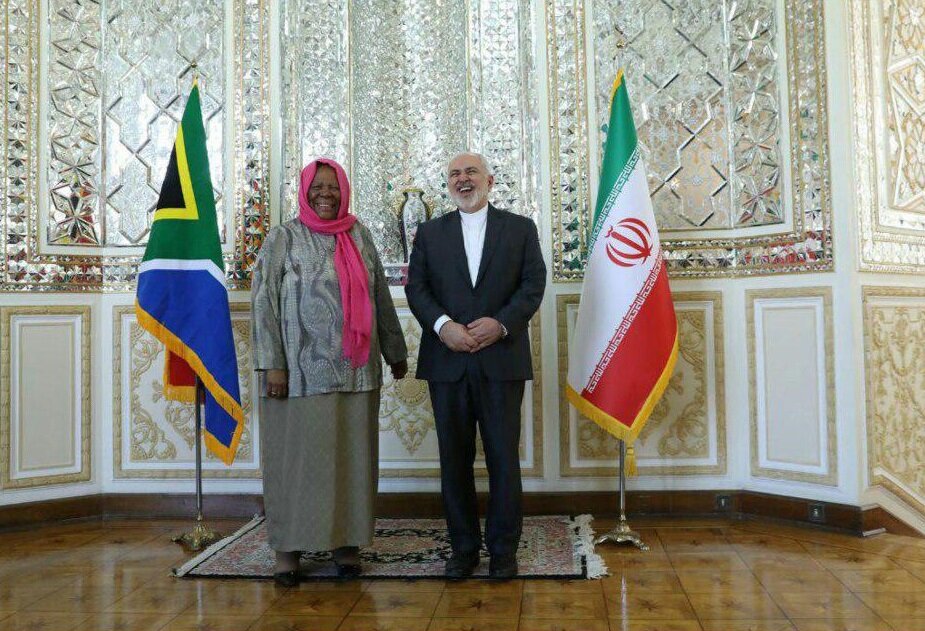Zarif: EU has so far been unable to fulfill JCPOA commitments

TEHRAN – Iranian Foreign Minister Mohammad Javad Zarif underlined on Wednesday that the European signatories of the 2015 nuclear deal have thus far been unable to fulfill their obligations under the pact, officially known as the Joint Comprehensive Plan of Action (JCPOA).
Zarif’s remarks came in a meeting with Grace Naledi Mandisa Pandor, the South African minister of international relations and cooperation, as Tehran hosted the 14th session of Iran-South Africa Joint Economic Cooperation Commission in Tehran.
Zarif said Iran will take new steps to reduce its nuclear commitments.
Under the JCPOA, Iran agreed to put limits on its nuclear program in exchange for termination of financial and economic sanctions.
“In case of lack of balance in fulfilment of obligations of both sides of the nuclear deal, Iran will embark on materializing necessary measures within the framework of next steps,” Zarif stated.
He said the U.S. decision to quit the JCPOA was a blatant violation of the UN Security Council resolution 2231, contrary to the UN member states’ will and intention as well as the weakening of Non-Proliferation Treaty and the multilateral diplomacy approach.
Zarif pointed to Iran’s commitment to its obligations under the JCPOA even a year after Washington’s illegal withdrawal from the deal, saying, “Iran’s strategic patience ended and exactly based on the deal’s context and according to paragraph 26 and 36 of the deal it scaled down its undertakings in three different steps.”
He separately said both Iran and South Africa share common views towards a variety of regional and international issues including Palestine, human rights, necessity to reform the UN Security Council structure, campaign on terrorism and extremism, peaceful uses of nuclear energy, South-South cooperation and international organizations’ cooperation.
Zarif further hoped for reinvigoration of economic, trade, technological and scientific ties between the two nations’ state-run and private sectors.
He further briefed the South African official about Tehran’s view regarding security in the Persian Gulf and President Hassan Rouhani’s security plan named Hormuz Peace Initiative (HOPE) and Tehran’s call on other regional nations to join it.
Pandor, for her part, admired Iran’s valuable supports for the South Africans’ campaign against the Apartheid regime and underlined her country’s stance against unilateralism, recognizing nations’ right to peaceful uses of nuclear energy, opposing the U.S. unilateral sanctions against Iran and continuation of cooperation between the two nations in different areas.
Both officials stressed the need for pursuing mutual cooperation within the framework of Non-Aligned Movement, countering terrorism and violence and keep continuing non-stop efforts for restoration and reinvigoration of peace and stability worldwide via diplomatic paths.
MJ/PA
